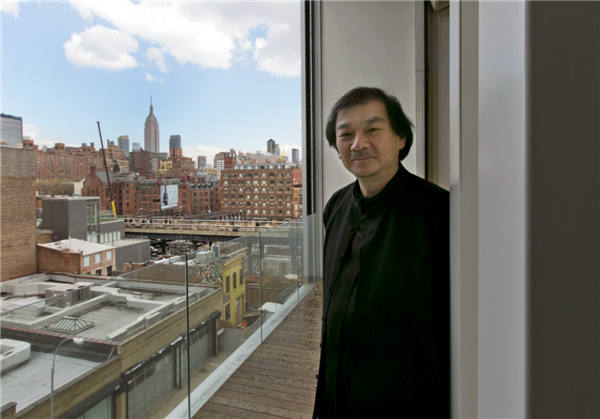Materials man
 |
|
Shigeru Ban stands on the balcony of an apartment in the "Metal Shutter House" he designed in New York. |
In its citation, the Pritzker jury noted Ban's unique approach to materials. "He is able to see in standard components and common materials, such as paper tubes, packing materials or shipping containers, opportunities to use them in new ways," the jury wrote.
It noted his "Naked House" in Saitama, Japan, in which the architect used clear corrugated plastic on the external walls and white acrylic stretched across a timber frame to create a home that questions "the traditional notion of rooms and consequently domestic life".
Ban's "Curtain Wall House" in Tokyo uses two-story high white curtains to open or close the home to the outside. Similarly, his "Metal Shutter Houses" in New York's Chelsea neighborhood feature a unique metal shutter system to open up apartments to the city air.
But it is Ban's humanitarian work that the Pritzker jury emphasized in announcing the prize, which will be formally awarded June 13 at the Rijksmuseum in Amsterdam. "Where others may see insurmountable challenges, Ban sees a call to action," the citation says.
Speaking in an interview this week in one of the distinctive "Metal Shutter House" apartments, Ban, who has offices in Tokyo, Paris and New York, explains that despite his extensive work for private clients, his humanitarian efforts are of utmost importance to him.
"This is my life's work," he says.






















